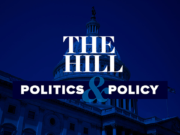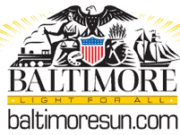This piece originally appeared in Washington Examiner on May 1, 2019.
Oliver Wendell Holmes once said, “Every idea is an incitement.” Facebook founder Mark Zuckerberg expressed his dismay recently over the difficulty in defining political speech and called for more government regulation of internet communications:
“All of the laws around political advertising today primarily focus on a candidate and an election. … But that’s not, primarily, what we saw Russia trying to do. … What we saw them doing was talking about divisive political issues. … The current laws around what is political advertising don’t consider discussion of issues to be political. … You can’t say that an election is just some period before people go to vote. I mean, the kind of information operations that these folks are trying to do now are ongoing, permanently. … I just think we need new rules on this.”
Mr. Zuckerberg, meet the real world.
The question of what should be regulated as “political” speech may be new to Facebook, but it has vexed campaign finance reformers for decades. The Supreme Court has repeatedly faced this issue, most notably in the 1976 case, Buckley v. Valeo. There, the court wrestled with language in the Federal Election Campaign Act that regulated spending by any person or organization on speech “relative to” a candidate for office. As the court noted, “No speaker, in such circumstances, safely could assume that anything he might say upon [a] general subject would not be understood by some as an invitation [to vote for a particular candidate].”
Candidates’ reputations are often closely tied to specific issues; speech “relative to” a candidate could include anything from discussion of tax rates to government corruption to climate change.
If any speech “relative to” a candidate, or the “discussion of issues” (to use Zuckerberg’s phrase) can be regulated because it is “political,” what is left of the First Amendment? The constitutional protections for freedom of speech, press, assembly, and petition were designed to protect, most importantly, speech about public affairs. The Supreme Court’s compromise answer in Buckley was to interpret the statute as applying only to direct financial contributions to candidates and political parties, and speech that specifically advocated the election or defeat of candidates with phrases such as “vote for” and “vote against.” It chose those categories because they presented the greatest possibility of quid pro quo corruption — trading votes for campaign favors.
Buckley’s refusal to let campaign finance laws swallow the First Amendment whole is one of the most important the court has ever made. So when Mr. Zuckerberg calls on the government to regulate “discussion of issues,” he is calling for massive government regulation of the marketplace of ideas.
He is asking the federal government to set broad standards on what Americans can say about public affairs, how they can finance their public communications, and what they must report about their associations and discussions to the government.
That is the catch: Zuckerberg may be aiming at foreign interference, but the regulatory burden is going to fall mainly on citizens who seek to speak about candidates, elections, and public affairs.
That this discussion was sparked by a piddling amount of Russian spending on bad memes in the 2016 election is particularly shameful. Buckley was decided at the height of the Cold War, when the Soviet Union was at its acme of power. Vietnam had collapsed; Cuban troops were fighting offensive actions in civil wars in Africa. Many experts expected that the Soviets would soon gain military superiority over the United States. Among other efforts to interfere in U.S. elections, in 1976, fearing that anti-communist Democrat Henry “Scoop” Jackson might win the presidency, the KGB forged FBI paperwork to make it appear Jackson was secretly gay and sent the fake reports to newspapers around the United States.
Yet even then, the court carefully guarded our First Amendment rights. The idea that we should now regulate the speech of Americans because Russia spent a few hundred thousand dollars on internet ads ought to strike us as absurd. But that’s what Zuckerberg, and, we should note, Democrats in Congress, are proposing.
The problem with trying to more broadly define “political” speech is, as Holmes said, that “every idea is an incitement.” The issue Zuckerberg identifies is not new. The question is whether, 30 years after victory in the Cold War, we are going to let a ham-fisted effort by the rump state of the Soviet Union cause us to surrender our First Amendment liberties.














